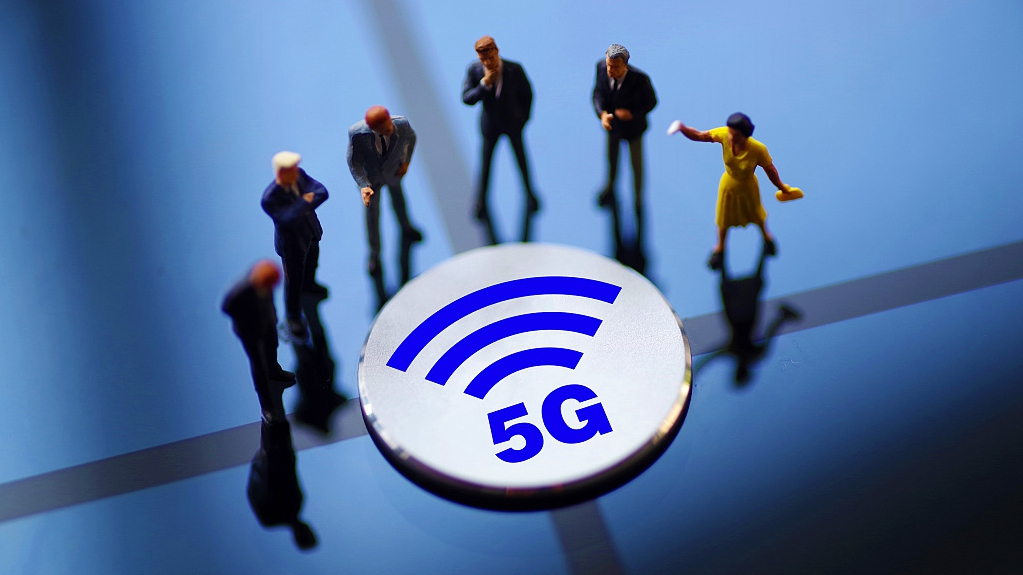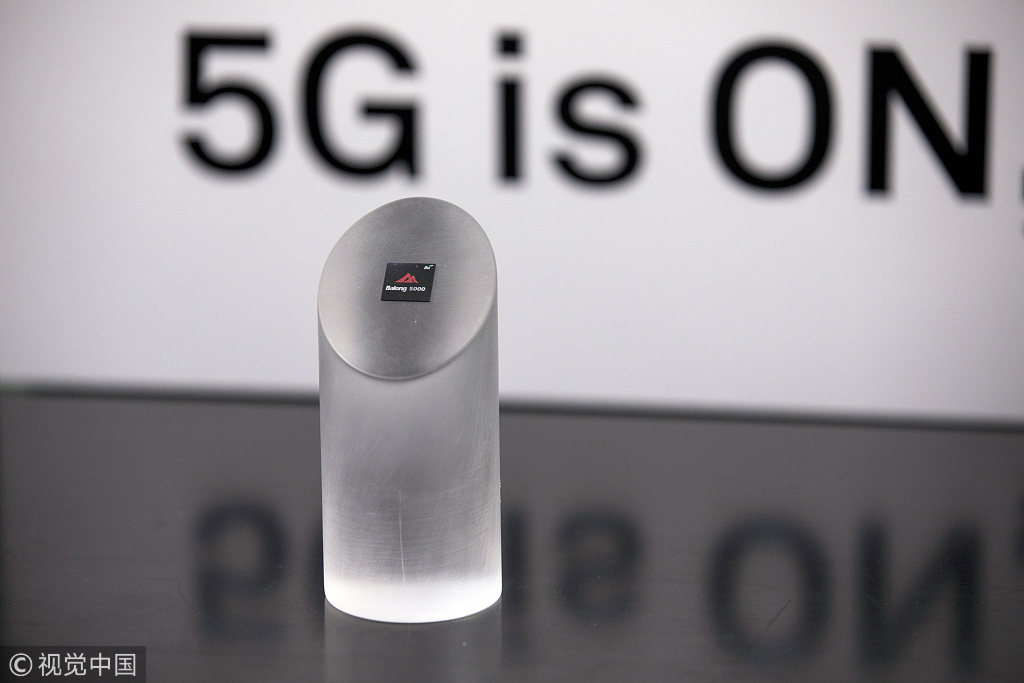
Analysis
17:21, 29-Jan-2019
Be alarmed to U.S. zero-sum thinking behind 5G competition
CGTN

According to a New York Times report last Saturday, the United States sees 5G as a part of a new arms race where winner takes all – “economic, intelligence and military advantages for much of this century.” The report reveals a deep-rooted ideology of the Trump administration, the zero-sum thinking that has blocked the U.S. from mutual understanding with China.
Huawei, China's leading telecommunications producer fell prey to this zero-sum mentality since 2012 when the U.S. barred it from selling equipment in the U.S. out of security concerns. Now, the U.S. involves its allies in this zero-sum game against Huawei by excluding it from the building of 5G network worldwide, adding more fuel to the flames.
Despite the efforts made by the U.S., no hard evidence has ever been found implicating Huawei in any espionage, noted in the report. And to be honest, the U.S. concerns do not hold much water these days concerning its international credibility, the recent Cuba embassy “sonic attack” turned out to be the cricket's call is a case in point.
Therefore, it becomes evident that, as the Global Times put it, it is only a strategic move by the U.S. to contain the rise of China in the technological field out of the zero-sum ideology instead of actual cybersecurity threat. However, it seems that the U.S. has forgotten the intention of 5G is to provide more convenient and efficient communication among people and beyond borders.

Huawei unveiled the 'Balong 5000' chip, the worlds first intended for use in 5G devices during an event in Beijing, China, January. 24, 2019. /VCG Photo
Huawei unveiled the 'Balong 5000' chip, the worlds first intended for use in 5G devices during an event in Beijing, China, January. 24, 2019. /VCG Photo
Huawei invested five billion RMB in developing 5G technology last year and has signed 30 commercial 5G contracts worldwide, 60 percent of which in Europe according to Bloomberg. The full-series 5G engagement makes it a frontrunner in the market regardless of political attacks from the United States. But it was never a race for Huawei who is collaborating with a variety of different organizations, including operators and vendors, to work toward 5G standardization.
It is unacceptable to take assumption as fact without sound evidence, and groundless to politicize a corporate's behavior. As the Chinese Foreign Ministry spokesman pointed out on January 29, “the U.S. has been using national power to tarnish and crack down on specific Chinese companies in an attempt to strangle their lawful and legitimate operations. Behind such practices are deep political intentions and manipulations.”
With the friction between China and the U.S. evolves, those assumptions and suspicions with strong political intentions are likely to drag the two sides into a security dilemma, fueling a possible “Tech War” under the zero-sum thinking.
The crux of the China-U.S. friction lies in the different mindsets. While the U.S. is stuck in the zero-sum thinking, China has held high the ideology of positive-sum by proposing the Belt and Road Initiative and the concept of shared future for mankind, in the hope of sharing the fruit of Chinese development with other countries.
Suppressing the development of Chinese high-tech companies is addressing the symptom instead of the cause because no one else can help cure the U.S. paranoid but itself, and there will always be new leading Chinese companies emerging with the rise of China. As for Chinese companies, the only way to break down prejudice is to develop core technology and let competence prove themselves.
(If you want to contribute and have specific expertise, please contact us at opinions@cgtn.com.)

SITEMAP
Copyright © 2018 CGTN. Beijing ICP prepared NO.16065310-3
Copyright © 2018 CGTN. Beijing ICP prepared NO.16065310-3